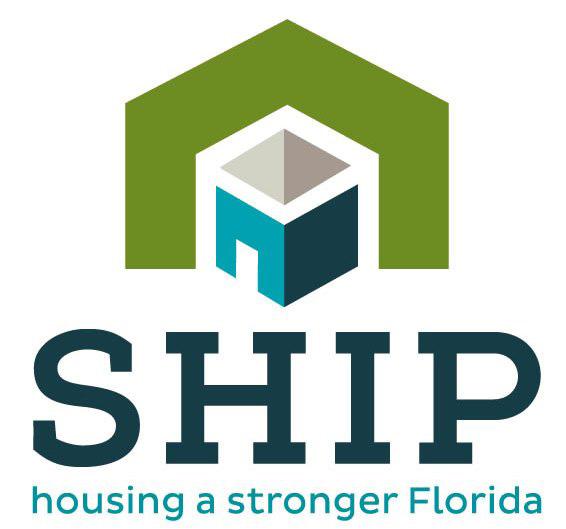
5 minute read
Frequently Asked Ship Questions
State Housing Initiatives Partnership Program
BY MICHAEL CHANEY
Advertisement
QUESTION: During the 20/21 State Fiscal Year there was no allocation of SHIP funds. Can you confirm that a notice of funding availability (NOFA) advertisement is not required for 20/21?
ANSWER: In some cases, an advertisement is required. The answer depends on two factors:
1. Amount of 20/21 SHIP Revenue: While you are correct that there was no 20/21 allocation, some communities have a significant amount of 20/21 SHIP revenue from program income or recaptured funds. For example, some communities spent CRF to reimburse SHIP- funded COVID assistance. This reimbursed money is a source of 20/21 program income.
2. Waiting List: You do not have to advertise any strategies for which you already have a significant waiting list. revenue to assist only one household. In such a case, consider the requirements for the different types of SHIP revenue. Recaptured Funds are the only type of 20/21 revenue that must comply with the homeownership and construction set-asides. Recaptured funds are rare; they are the funds returned to a SHIP jurisdiction if and when not used in accordance with SHIP requirements. All other revenue is categorized as program income, which must only comply with the income set-aside. Therefore, the one applicant you assist must be very low income. The special needs set-aside is not applicable in this case. It only applies to the direct allocation that a local government receives from FHFC, which is a source of revenue that was not received in 20/21.
Scenario 3: Other communities receive over $100,000 of program income. They have until June 30, 2023 to fully expend this in compliance with the income set-aside.
Therefore, only advertise if you have more 20/21 SHIP revenue than you have applicants on your waiting list. QUESTION: The SHIP annual report will soon be due. Is there a new rule that I must report the number of applications that we have received?
QUESTION: Do the set-asides remain the same for 20/21 SHIP revenue?
ANSWER: Yes, but reporting begins with the 20/21 close out annual report that you will complete on or before September 15, 2023.
ANSWER: Yes, the set-aside rules in the SHIP Statute apply to 20/21 SHIP funds. Communities might have 20/21 SHIP revenue from several sources, including bank interest, the monthly repayment of a SHIP loan, SHIP repayments when a SHIP Lien is triggered, and recaptured funds. In addition, some communities used CRF to reimburse SHIP-funded COVID assistance. This is a source of 20/21 program income. Here are three set-aside compliance scenarios based on the amount of 20/21 SHIP revenue that a community has:
Scenario 1: A community with only a small amount of 20/21 revenue may carry it forward to the next allocation.
Scenario 2: Some communities receive enough program income House Bill 1339 from the 2020 Florida Legislative session requires that the annual report submitted to FHFC include “the number of affordable housing applications submitted, the number approved, and the number denied.” Although you will not report on SHIP applications until 2023, establish a system now to track application activity starting with the beginning of the 20/21 fiscal year on July 1, 2020.
QUESTION: Does an incomplete application count as part of the “affordable housing applications submitted”?
ANSWER: Yes, an incomplete application must be counted as part of all applications submitted. Sometimes it is not easy to tell that an application is incomplete when submitted to the
SHIP office. It is probable that most applications are incomplete until staff start to actively process them and discover what additional information and documentation is needed. Note that the SHIP annual report will not include a separate field for reporting the number of incomplete applications, so count them among “affordable housing applications submitted.” Once a submitted application is fully processed, its status will change. It will become either Approved or Denied, which are two more categories to be recorded in the annual report.
QUESTION: Many SHIP communities have waiting lists. In some communities, households complete an application when they are added to the waiting list. Others have each household complete a pre-screening form instead, and it is only later when the household is next in line for assistance that an application is completed. At which point in the process should a household be counted as part of the “affordable housing applications submitted”?
ANSWER: Count the application when it is received. Consider requiring households to fill out applications when they are added to the waiting list. A major purpose of this new requirement to collect application information is to document the need for housing assistance. This is done by reporting the volume of households entering the SHIP system. In some communities, households begin the SHIP program application process on the waiting list. By having those on the waiting list fill out applications, these households will be counted and will show the significant need for SHIP assistance. It will help to get uniform data across the state if reporting is done consistently.
REPORTING APPLICATIONS QUESTION: How should we track and report applications when SHIP provides a type of assistance for which households do not apply directly to the SHIP office? ANSWER: There are certain types of assistance where households will not apply directly to the SHIP office. For example, when a developer applies for SHIP funds to pay impact fee costs associated with newly constructed homeownership units, the individual homeowners apply to the developer, not the SHIP office. In cases such as these, count a submitted application and an approved application for each SHIP-funded unit the developer proposes to build, but do not count the applications that the developer will later receive from households who wish to purchase the units.

The same is true when a developer applies for a SHIP construction or rehabilitation subsidy for a subdivision of single-family homes or a multi-family rental development. In these cases, do not count applications later received by the developer to occupy the housing units. SHIP staff only needs to count an application for each SHIP-funded unit that the developer will build or repair in accordance with the written agreement.
Consider that a SHIP office might receive some funding requests from developers that are not funded. Count the SHIP-funded unit these developers propose as applications submitted, but also count them as applications denied.
If you have questions about The Ship Program Call Today!
QUESTIONS ABOUT THE SHIP PROGRAM?
Free telephone technical assistance is available to help you successfully implement your SHIP funded work. Call the Florida Housing Coalition’s SHIP hotline at (800) 677-4548, Mon.-Fri. 8:30-5:00.
Michael Chaney is a Technical Advisor for the Florida Housing Coalition, specializing in SHIP, homebuyer counseling, and foreclosure prevention programs. He has 21 years of experience providing technical assistance to local government, nonprofit housing professionals, and consumers throughout Florida. Michael holds a Bachelor’s degree from Loyola University in New Orleans and a Master’s of Social Work Administration from Florida State University, where he has served as an adjunct faculty member of the housing department.









